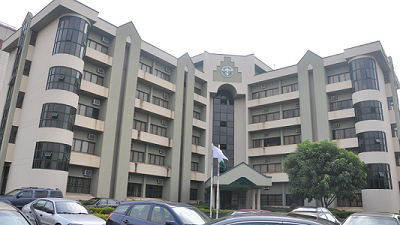The National human rights Commission (NHRC)has advised the media to be cautious in reporting migration issues, so that it is not used to perpetuate harmful stereotypes.
The call was made by Dr Anthony Ojukwu,SAN , executive secretary of NHRC while speaking newsmen at a-two-day training on human rights-based approach to migration.
The event organised by NHRC in partnership with Office of the UN resident and humanitarian coordinator, UN office on Drugs and Crime (UNODC) and the kingdom of the Netherlands.
” The training is aimed at enhancing understanding on trafficking in persons (TiP), Smuggling of migrants (SoM ) and human rights-based approach to migration.
” To also equip media agencies with the skills and knowledge to report ethically, accurately, and sensitively on issues of trafficking in persons and smuggling of migrants” he said.
Ojukwu explained that Human Rights Based- Approach (HRBA) is a conceptual framework aimed at promoting and protecting human rights based on international standards.
HRBA to migration according to Ojukwu prioritises treating migrants as human beings, underscored by principles of non-discrimination, empowerment, participation, inclusion, and accountability.
He believes that NHRC ‘s response to the human rights of migrants and persons who have been trafficked or smuggled will be anchored on express and inherent mandate and powers of the Commission.
“HRBA puts human rights and corresponding state obligations in policy, empowering migrants in vulnerable situations to participate in decision-making processes and hold duty-bearers accountable.
” Migration is part of the right to freedom of movement. In the first place we should not look at migrants as enemies.
” Migrants have a right to move. We stop looking at migration as if someone has committed an offence” he said.
Ojukwu noted that migration is about exercising your right to move, what we call “Greener Pastures”where you feel that life would be better for you.
He added that the world is one entity and the Lord has created the world and given us the right to movement .
He further stated that we should not stigmatise or criminalise people who move to find a better life.
” Migration is best understood if we consider it a right and not an offense rather we assist a migrant to realise his right by protecting it, that makes this important.
” It is the media that can do this advocacy, that can narrate the story in the way the common man in the village would understand.
” In a way our law enforcement agents would understand because , if the media doesn’t carry the story in a proper way, they would create an impression about migration as an offence , criminal action or hostile” he said.
Ojukwu said It’ is very important for the media to know migration is a right, flowing from the right to freedom of movement and association.
He added that migrants should rather be protected and assisted to realise their rights and that duty is for everyone of us.
He further said it started with border authorities who are the first point of contact when a migrant is moving across international borders.
” It is a lot easier, if it’s within the country. The first point of contact is very material and don’t forget the image you create about your country is very critical.
” If a border official treats a migrant badly that is the impression they are going to have about the country and that also drive the person into criminality whereas if the person is assissted and helped to realise his right he would get things done the right way.
” The madia has two duties which are
To put the current narrative out there and to inform the right way of going around migration” he said.
He noted that the role the media has to play is very critical that is why they are seen as a critical stakeholders in this issue.
He added that correct information should be given not to discriminate migrants or be hostile to them .
Ojukwu said it is also to create information about the right way to migrate so that the challenge and vulnerability would be reduced.
” Media, as a key influencer of public opinion and awareness, plays a crucial role in framing narratives and policy discourses that affect public actions, thoughts, policymaker priorities, and migrant decisions.
” The media disseminates information while highlighting the challenges, aspirations, and vulnerabilities of migrants, fostering a deeper understanding of migration drivers” he said. (NAN)

























